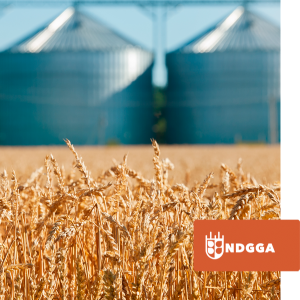Farm Bill, Where Are Thou?
 The Farm Bill expired at the end of the fiscal year, September 30th. And on Monday, we hear the House passed a yearlong extension as a part of their funding package to keep the federal government going.
The Farm Bill expired at the end of the fiscal year, September 30th. And on Monday, we hear the House passed a yearlong extension as a part of their funding package to keep the federal government going.
But ultimately, we’re still without a farm bill.
So why can’t Congress get this legislation that has always been generally bipartisan passed?
Unfortunately, times have changed. The once truly, bipartisan bill that had little controversy has now united extremists from both parties in their opposition to it. One could say the opposition is similarly Bipartisan: Far right believe that the Farm Bill’s food stamp inclusion is way too generous. The far left believe it pays farmers to overproduce and create land deterioration. Both lack a basic understanding of how the bill works altogether.
And still, there are problems finding the dollars to pay for the bill. While some have suggested that funds provided in the Inflation Reduction Act could be utilized, both the administration and the democrats will not allow this to happen. And taking dollars from other programs is a scary endeavor. Leaders working on the Farm Bill still have a lot of work to do in order to find an increased funding source.
And even if changes are made to pacify the extremists and dollars are found to fund and increases, the upcoming 2024 Election looms. Those legislators that are up for election where the Farm Bill is popular will want to see it pass and those who are running against them will want to see the process slow down.
But let’s put politics aside for a moment and talk about the bottom line: If we want to continue to have our nation’s food sourced from family farmers, they have to have a safety net…and crop insurance is the most important part.
Having food in the hands of few will lead to expensive food. We’ve seen this happen in other countries; take Singapore for instance. This country imports 90% of its food from countries like Malaysia, Brazil and China. Only about 1% of its land is set aside for farming. This makes the country quite vulnerable to global interruptions such as war and natural disasters. The country, as of late, has been working on diversifying its import food chain and calling for more agriculture right at home.
Although we’re lacking a new Farm Bill package, there is some relief in sight. USDA recently announced that it would be sending out emergency payments to eligible producers through the Emergency Relief Program (ERP) and the Emergency Livestock Relief Program (ELRP). These funds add up to over $1.17 billion dollars, and are due to natural events in 2020 and 2021. Although there are some issues with how the dollars are being calculated, it will help producers cash flow.
All in all, farmers deserve better. Farm organizations have been working to educate the general public at large for years on the importance of a Farm Bill, but it can’t fall to our shoulders alone. Congress must stand with farm country and speak out in favor of a food supply that would become demonstrably more expensive in the hands of a few. Because while politics continues to play a decisive role in this bill’s implementation, those who rely on it to feed this nation are the ultimate victims of a game that nobody will ultimately win.
It’s time to make the Farm Bill a priority.
